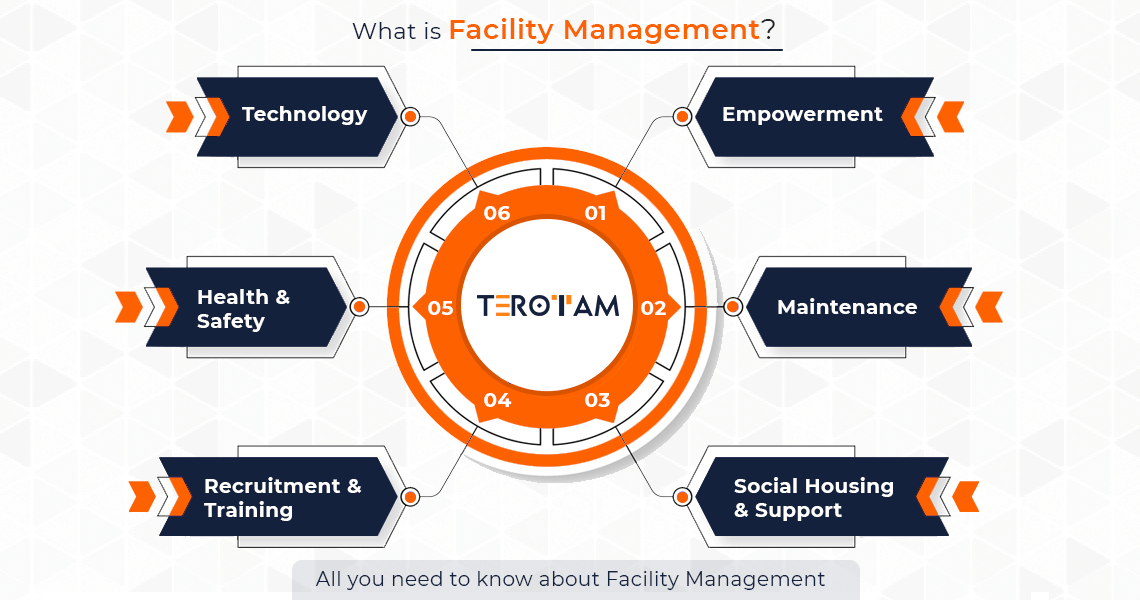Key Fads Forming the Future of Facility Administration in 2024
As we expect 2024, the landscape of center administration is poised for substantial change, driven by several essential fads. The combination of wise structure technologies and a change towards data-driven decision-making assurance to improve functional effectiveness while focusing on sustainability in method. Furthermore, the introduction of hybrid work versions is reshaping workplace environments, demanding innovative layout remedies that accommodate evolving staff member needs. Amid these modifications, the concentrate on occupant wellness proceeds to obtain traction, highlighting the relevance of a healthy work environment. Exactly how these fads will materialize in method continues to be a crucial inquiry for sector professionals.
Smart Building Technologies

Smart building technologies incorporate a large variety of systems, including smart illumination, heating and cooling controls, and safety and security systems. By incorporating these systems, center managers can monitor and readjust parameters in real-time, leading to substantial reductions in power waste and functional costs. Wise sensors can spot occupancy degrees and readjust illumination and temperature level appropriately, making certain that energy is just used when needed.
Moreover, these modern technologies help with boosted data collection, enabling companies to track usage patterns and recognize opportunities for more improvements. The implementation of smart building modern technologies not only contributes to sustainability objectives but likewise develops healthier workplace that can increase staff member productivity and fulfillment.
As we relocate into 2024, the fostering of smart building innovations will likely increase, showing a broader shift in the direction of even more intelligent, responsive, and sustainable center monitoring practices.
Data-Driven Decision Making
Significantly, companies are leveraging data-driven choice making to enhance facility administration methods. By using data analytics, facility supervisors can acquire workable understandings that considerably boost operational performance and resource allowance. The assimilation of innovative technologies, such as IoT sensors and real-time monitoring systems, allows the collection of huge quantities of information on structure efficiency, tenancy prices, and power intake.
This wealth of information allows facility managers to identify trends, predict maintenance needs, and proactively address issues before they rise. Predictive analytics can forecast tools failings, lowering downtime and repair service expenses. Furthermore, data visualization tools facilitate much better interaction among stakeholders, making certain that informed decisions are made collaboratively.
Additionally, data-driven techniques enhance strategic preparation by making it possible for center managers to evaluate the effectiveness of existing techniques and make notified options regarding financial investments in modern technology or facilities. As organizations significantly focus on operational quality, data-driven choice making is poised to come to be a foundation of successful center administration strategies in 2024 and past. Eventually, the ability to utilize information efficiently will encourage companies to create extra effective, productive, and durable facilities.
Sustainability and Environment-friendly Practices
The emphasis on data-driven choice making naturally aligns with the expanding emphasis on sustainability and environment-friendly techniques within center administration. As companies progressively prioritize ecological responsibility, facility supervisors are leveraging analytics to enhance source usage, minimize Recommended Reading waste, and minimize carbon footprints. This tactical method makes it possible for the combination of energy-efficient systems, such as LED lights, wise cooling and heating controls, and renewable resource sources right into facility operations.
In addition, the application of sustainable practices prolongs past energy intake. Facility managers are taking on environmentally friendly products and advertising recycling campaigns to create a round economic situation within their facilities. This not only boosts the environmental profile of the company yet also promotes a society of sustainability amongst workers.
Compliance with ecological policies is one more essential aspect driving the adoption of environment-friendly methods. By making use of information analytics, center managers can keep track of conformity metrics and recognize locations for renovation, ensuring adherence to regional and worldwide sustainability criteria.
Hybrid Job Versions
A significant shift towards hybrid work designs is reshaping the landscape of facility administration in 2024. This standard integrates in-office and remote job, demanding a reevaluation of room application, source appropriation, and employee engagement strategies. Organizations are increasingly recognizing the relevance of flexible workspaces that deal with varied demands and choices.
Center supervisors should adjust by executing functional office layouts that support collective initiatives while providing locations for focused work. This includes the assimilation of technology to assist in smooth interaction and collaboration amongst remote and in-office workers. Smart structure services, furnished with analytics and sensors, enable see post for real-time surveillance of space usage, making it possible for organizations to enhance their atmospheres successfully.
Furthermore, hybrid job versions emphasize the requirement for efficient center management that prioritizes worker experience. This includes not just innovation and room design yet likewise the growth of plans that advertise a well balanced work-life dynamic. As companies navigate this transition, the function of center administration comes to be crucial in creating a nimble office that fosters performance and drives organizational success. Basically, the hybrid work model is transforming facility administration, motivating a positive technique to satisfy the progressing needs of the labor force.
Improved Passenger Wellness
As companies welcome hybrid work models, a heightened concentrate on owner health is becoming integral to center monitoring methods. Facility Management. This shift acknowledges that a healthy and balanced and satisfied workforce straight affects efficiency and retention rates. Center managers are currently prioritizing atmospheres that advertise physical and psychological health, incorporating elements such as all-natural illumination, biophilic design, and accessible wellness sources

Innovation plays a vital role in this development. Smart building systems can keep an eye on ecological factors and change setups in real-time, making certain optimal comfort levels - Facility Management. Feedback mechanisms, such as occupancy sensors and worker surveys, enable center supervisors to continuously improve wellness campaigns based on passenger demands.

Final Thought
In 2024, the future of facility management will be considerably influenced by the assimilation of clever building technologies and data-driven decision-making, fostering boosted functional effectiveness. Sustainability efforts will certainly focus on environmentally friendly practices, while the appearance of crossbreed work models will certainly great post to read require flexible workplace styles. An increased focus on owner health through innovative Heating and cooling systems and biophilic design will certainly contribute to much healthier work settings. These patterns jointly highlight the evolving landscape of center management in action to contemporary obstacles and opportunities.
Center managers are adopting environment-friendly materials and promoting reusing initiatives to produce a round economy within their facilities.A considerable change towards hybrid job versions is reshaping the landscape of facility administration in 2024.In addition, hybrid work designs stress the demand for effective facility administration that focuses on staff member experience.As organizations embrace hybrid work designs, an enhanced emphasis on occupant wellness is ending up being important to center management techniques.In 2024, the future of center administration will certainly be substantially affected by the assimilation of clever structure innovations and data-driven decision-making, cultivating boosted functional performance.